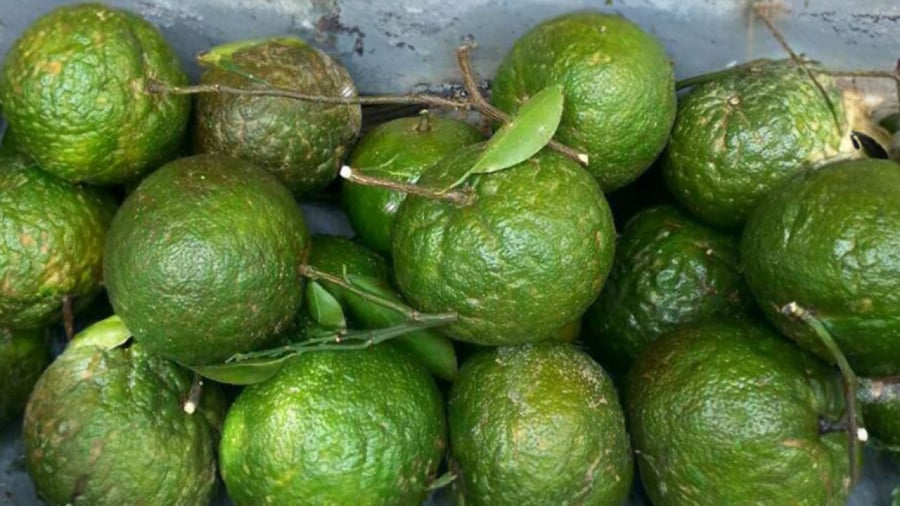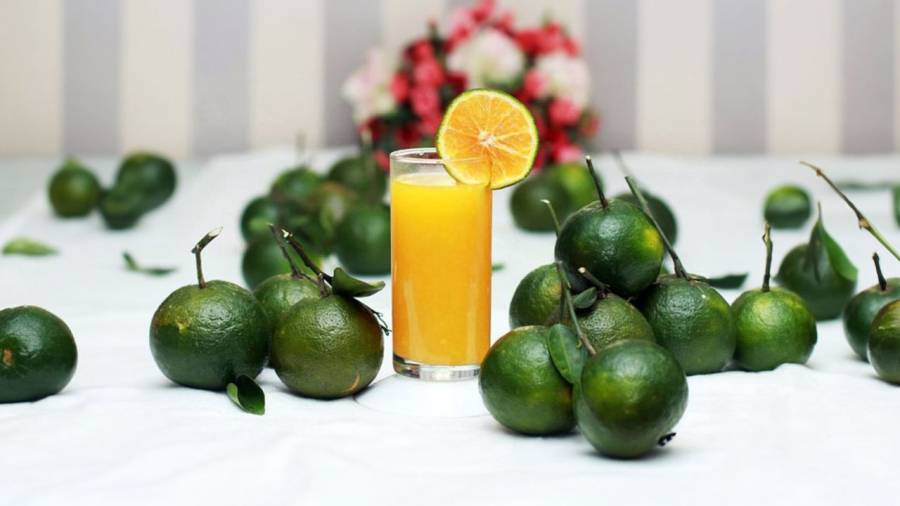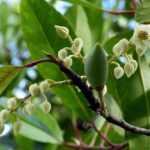Many countries prefer sweet, slightly sour mandarins because they are nutritious. With their rough green skin, special mandarins are popular for their mild sweetness. The bright yellow flesh of mandarins stands out and produces beautiful, standard orange juice.
Drinking orange juice has many health benefits such as providing vitamin C to boost immunity, aiding digestion, and increasing fiber. However, if you don’t know how to choose, you may end up with mandarins that look good on the outside but are dry and not very juicy or sweet on the inside.

Choosing good mandarins
Looking at the peel: Juicy mandarins must have thin, not thick and fluffy, peel. When you hold them, you can feel that the peel is thin and plump. Thick peels indicate that the mandarins have lost water when stored for a long time, and the pulp may feel dry, crumbly, and fluffy. A delicious mandarin has peel with yellow spots, yellow mixed with green, which is tastier than completely green or completely yellow mandarins. The outer peel of mandarins should not be too rough; those with large rough patches are less tasty.
Especially when choosing mandarins, pay attention to the stem end of the fruit. The stem area should have a thick and slightly raised peel, indicating the fruit will be sweeter. Then, hold the mandarin upside down to see the bottom; it should have a slightly ivory-yellow color, indicating naturally ripened mandarins. If both ends are completely yellow, it’s likely artificially ripened. Mandarins that have lost their stem and have a yellowish color may be damaged or have been stored for a long time.
Overall, good mandarins have bright peel without dark patches and are not overly rough.
Picking a heavy fruit: When buying mandarins, you should hold them to feel their weight. If any fruit feels heavy, it means it has more water and should be chosen. On the other hand, if a large fruit feels light and the thick peel feels insecure, it should not be chosen. Gently squeeze the mandarin; if it feels slightly soft but not squishy, it has more juice. Avoid choosing mandarins that are too large or too small. Large fruits that feel light are empty and hollow. Very small fruits are often unripe or prone to falling off or infestation.

Mandarins are available all year round in supermarkets, but seasonal mandarins are tastier. The mandarin season is at the end of the year and the beginning of spring, while the mandarins available in other months are either off-season or have been stored for a long time and may become dry.
Special mandarins are characterized by their rough green skin and mild sweetness. Their bright yellow flesh is particularly notable, as it produces beautiful, standard orange juice.
Orange juice is an excellent source of vitamin C, which boosts immunity. It also aids digestion and provides valuable fiber. Consuming orange juice can be a delicious way to enhance your overall health and well-being.
When selecting mandarins, it’s important to consider the peel. Juicy mandarins should have thin, not thick and fluffy, peels. A plump and thin-skinned mandarin indicates freshness. Additionally, look for yellow spots or a mix of yellow and green on the peel, as this suggests a tastier fruit. Avoid mandarins with completely green or yellow peels, as they may be artificially ripened.
The stem area of a delicious mandarin should have a thick and slightly raised peel, indicating a sweeter fruit. Additionally, check the bottom of the mandarin; it should have a slightly ivory-yellow color, suggesting natural ripening. If both ends are completely yellow, it’s likely artificially ripened.
Choose mandarins that feel heavy for their size, as this indicates a higher water content. Avoid large fruits that feel light, as they may be empty and hollow. Also, steer clear of very small mandarins, as they could be unripe or prone to falling off the tree prematurely.
While mandarins are available year-round in supermarkets, the tastiest mandarins are seasonal. The mandarin season falls at the end of the year and the beginning of spring. Mandarins available during other months may be off-season or stored for long periods, which can affect their freshness and moisture levels.
Understanding the Uses and Benefits of Essential Oils
What are the therapeutic properties of essential oils? How can they be used to improve your wellbeing? This article will explore the various types of essential oils, their benefits and uses. Uncover the power of these natural remedies and find out how they can help your own health and wellness!



































